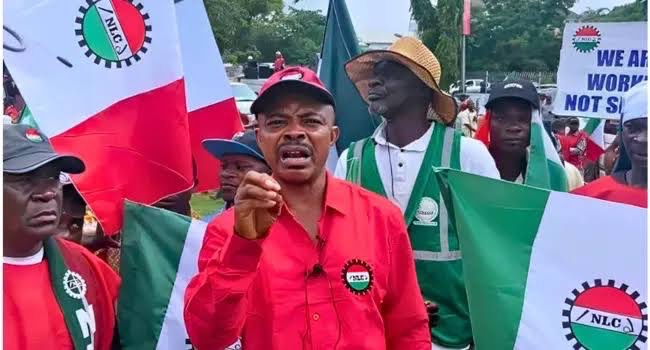Federal Government Warns Against Planned Strike, Cites Economic Risks

The Federal Government has warned that the proposed strike by organised labour, scheduled to commence on Monday, would exacerbate the economic challenges faced by citizens.

The Minister of State for Labour and Employment, Nkeiruka Onyejoecha, voiced the government’s concerns, emphasizing that a new minimum wage should not result in widespread job losses, particularly in the Organised Private Sector, which employs the majority of the nation’s workforce.


Onyejoecha cautioned that the strike is not in the best interests of the country and its people, especially while negotiations are still ongoing.”
Going on strike in the middle of ongoing negotiations would not only compound the economic woes but also exacerbate the suffering of millions of Nigerians who are already struggling to eke out a living from their daily endeavors,” she said through her media aide, Emameh Gabriel.

This statement comes after the Nigerian Labour Congress (NLC) and Trade Union Congress (TUC) announced their decision to strike on June 3, following the failure of the tripartite committee to agree on a new national minimum wage.
The Labour Minister highlighted that the government has shown consistent commitment and goodwill throughout the negotiations with organised labour. She detailed the government’s proposals, which include a wage increase to N60,000 for federal workers, the introduction of CNG-fueled buses, and enhanced financial access for Micro, Small and Medium Enterprises (MSMEs).
Onyejoecha also noted the government’s pledges to invest in strategic sectors such as agriculture, manufacturing, education, and healthcare. She underscored that the government’s approach aims to balance the needs of workers with the country’s economic realities, ensuring that any minimum wage agreement is realistic and sustainable.
“The government’s stance is rooted in a deep understanding of the negotiations, demonstrating its dedication to finding a balance between the needs of workers and the economic realities of the country”.
“The goal is to establish a minimum wage that is not only realistic but also sustainable, avoiding any potentially detrimental consequences for the economy,” she submitted.

